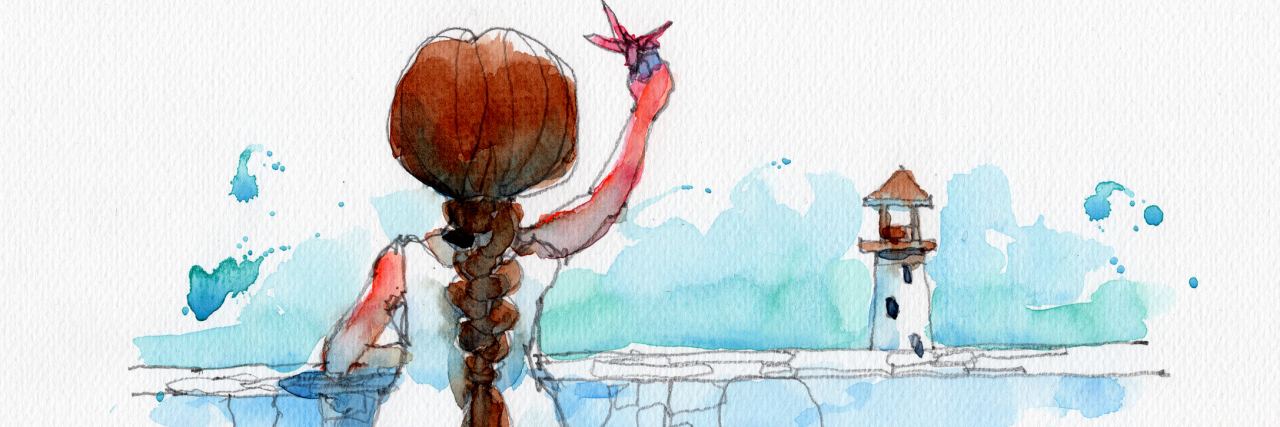When You're Trying to Find the Part of Yourself You Lost in Childhood
Grief.
A deep sorrow in response to loss.
I have experienced enough grief that trying to remember any one instance can consume me like a monsoon. I have grieved for loved ones and with loved ones. I have experienced grief over strangers and foreign places. I have experienced grief in relation to things you would probably say “were nothing” or “were a lot to handle.”
But the strongest grief I have experienced is the loss of me.
I don’t talk about this much, because it’s difficult. And difficult conversations are ones we are conditioned to avoid. I don’t talk about this because how can I be lost if I am here? I don’t talk about this because who am I to talk about grief? I have not lost a father, a mother, a brother, a sister, a child, a spouse, a significant other. Who am I to grieve over losing myself?
I don’t talk about this because I don’t want to admit it out loud. Vocalizing the way you are feeling is scary because it makes it real. It means you’re letting someone else in on the secret you’ve been holding on to. It means that you’re letting someone privy to how you feel, to your grief.
Grief.
Grief is a spectrum, calibrated on an individual basis. You should not be deciding if my grief is real enough to feel. You shouldn’t tell me it could be worse, because I know it could be worse. But that doesn’t give you the right to minimize the way I am feeling. It doesn’t mean that you should flood my mind with worse scenarios.
Because if I am feeling it, it is real and it is valid.
It has taken me 25 years to firmly state my feelings are valid. And I need you to know I am important enough to grieve while I am still here.
I experienced grief at the loss of myself. Because, spoiler: I lost myself.
I lost myself sometime in my formative years. When I let others dictate the way I should feel. When I let myself shrink into the background, so I would never be a burden. I don’t remember the last time I felt whole.
I lost myself sometime after I turned 15. When I started to see myself differently. When I allowed for the views of others to cloud the way I saw myself, the way I loved myself. A part of me left on a random week day.
I lost myself again after I turned 19. When I allowed for others to cancel my trauma. When I doubted myself. A part of me left on a random weekend.
I lost myself again, every single year in my 20s. I would think I was doing fine but then I would crack, I would break open and part of my soul would escape.
I have yet to find all of her. The girl who wasn’t focused on being a perfectionist. The girl who didn’t have anxiety attacks. The girl who wasn’t drowning in a sea of depression. The girl who wasn’t consumed by an eating disorder. The girl who wasn’t trying to heal with a bottle. The girl who wasn’t just pretending to be happy.
I don’t know where she went. I lost her and I don’t know how to get all of her back.
So I grieve.
I grieve so I may feel my sorrow, when it feels as though a part of me has died. I grieve so the decay from that loss doesn’t
have the chance to replicate and spread throughout my entire body.
I grieve so that I may heal. I grieve so I may one day find myself.
If you or someone you know needs help, visit our suicide prevention resources page.
If you need support right now, call the National Suicide Prevention Lifeline at 1-800-273-8255 or text “START” to 741-741.
We want to hear your story. Become a Mighty contributor here.
Getty Images photo via Archv

